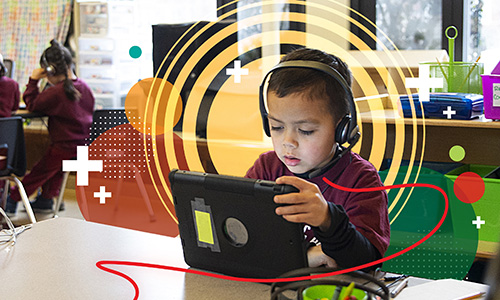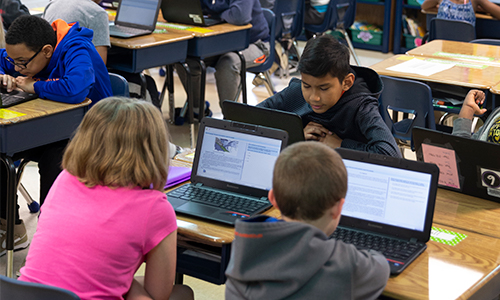Journal article
Developing more meaningful definitions of college readiness
2013
TASA INSIGHT Magazine, 28(4), 13–15.
By: John Cronin, Michael Dahlin

Abstract
Complementing traditional quantitative measures with more qualitative tools can help determine college and career readiness.
This article was published outside of NWEA. The full text can be found at the link above.
Related Topics


MAP Reading Fluency with Coach Evidence Base
This document provides an overview of the research underlying MAP Reading Fluency with Coach’s AI-powered intelligent reading tutor and the research on key elements of early literacy instruction. It describes the components of the MAP Reading Fluency with Coach pedagogy and the research base supporting each component.
By: Amy Endo
Products: MAP Reading Fluency
Topics: Early learning, Empowering educators, Innovations in reporting & assessment, Reading & language arts


District and school leaders’ perspectives on leading & learning during the COVID-19 pandemic
This report captures the perspectives of district, school, and teacher leaders (hereafter referred to as “local leaders”) to surface best practices for supporting student learning during COVID-19.
By: Hayley Weddle, Ayesha K. Hashim, Ogechi Irondi
Topics: COVID-19 & schools, Empowering educators


The instructional legacy of COVID-19: Teacher adaptation in response to the pandemic
This study investigated teacher adaptation to the changes in teaching conditions caused by the transition to distance learning in the COVID-19 pandemic.
By: Helena Connolly, Naina Abowd, Catherine C. Chase
Topics: COVID-19 & schools, Empowering educators


Using data from the Applied Problems subtest of the Woodcock-Johnson Tests of Achievement administered to 1,364 children from the National Institute of Child Health and Human Development (NICHD) Study of Early Childcare and Youth Development (SECCYD), this study measures children’s mastery of three numeric competencies (counting, concrete representational arithmetic and abstract arithmetic operations) at 54 months of age.
By: Pamela Davis-Kean, Thurston Domina, Megan Kuhfeld, Alexa Ellis, Elizabeth Gershoff
Topics: College & career readiness, Early learning, Math & STEM


Family perceptions of participating in a structured summer kindergarten transition program
Researchers interviewed parents whose children participated in a three-week structured kindergarten transition program designed to promote parental involvement in school, reduce students’ chronic absenteeism, and increase children’s readiness for kindergarten. Interviewees expressed that participating in the program yielded benefits for themselves and their children, and proposed various ways that adjusting the program could better meet the needs of all stakeholders. Parent suggestions were synthesized into multiple implications for practice and substantiated by current relevant literature.
By: Christopher Merideth, Beth Cavanaugh, Sue Romas, Nicole Ralston, Eva Arias, Beth Tarasawa, Jacqueline Waggoner
Topics: Early learning, Empowering educators


Measuring middle school achievement trajectories for college readiness
This study identifies students’ academic trajectories in the middle grades relative to a set of college readiness benchmarks. We apply math and reading college readiness benchmarks to rich longitudinal data for more than 360,000 students across the nation. Student-level and school-level demographic characteristics significantly predict academic trajectories.
By: Angela Johnson, Megan Kuhfeld, Greg King
Topics: Equity, College & career readiness, Middle school


Addressing COVID-19’s disruption of student assessment
In this Inside IES Research blog, RAND and NWEA researchers share some early findings from their work under an IES grant to develop strategies for schools and districts to address the impacts of COVID-19 disruptions on student assessment programs. In the blog, they describe some key findings from surveys and interviews on key concerns of districts and schools arising from the lack of assessment data from spring 2020.
By: Jonathan Schweig, Andrew McEachin, Megan Kuhfeld
Topics: COVID-19 & schools, Empowering educators


